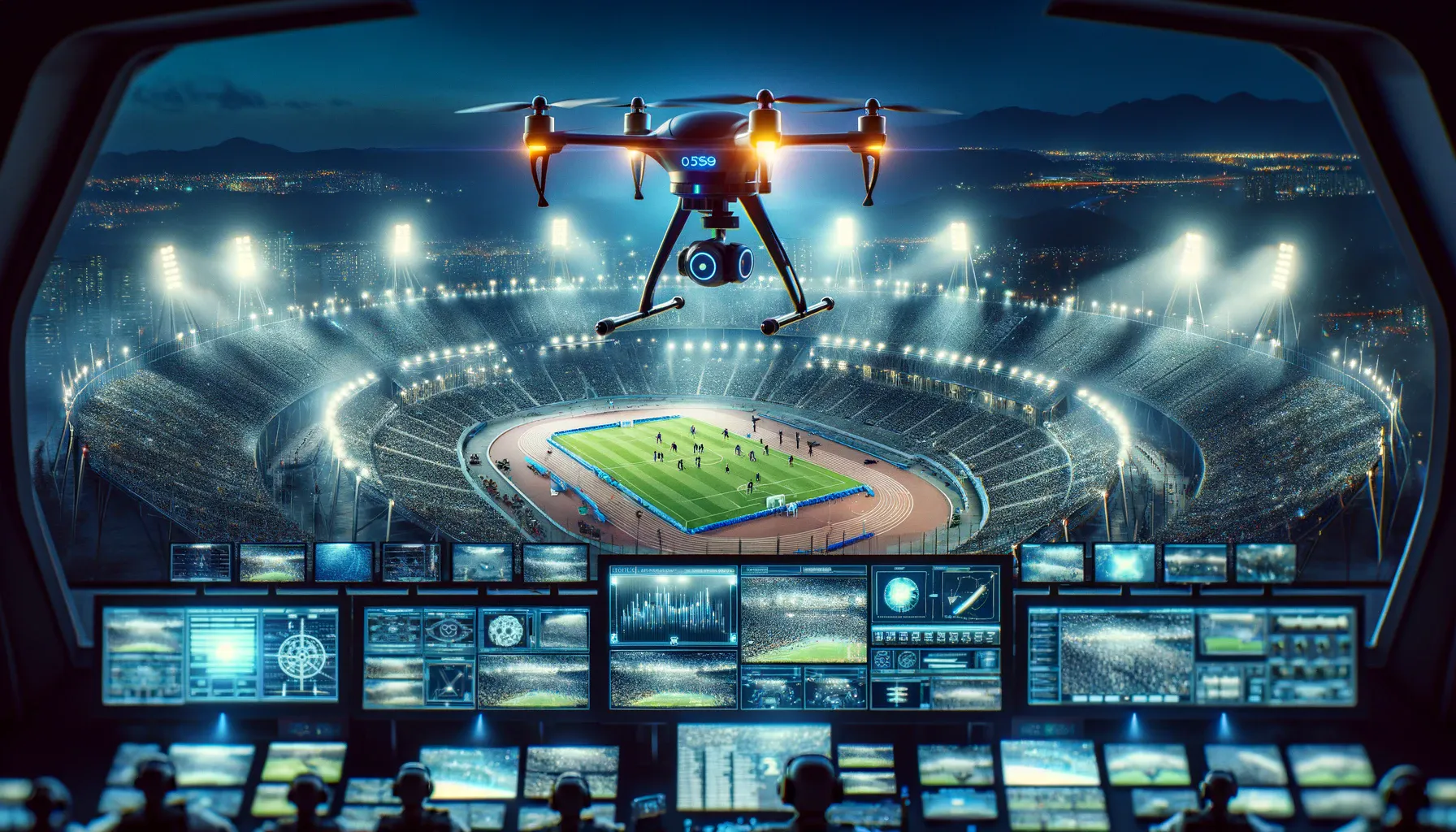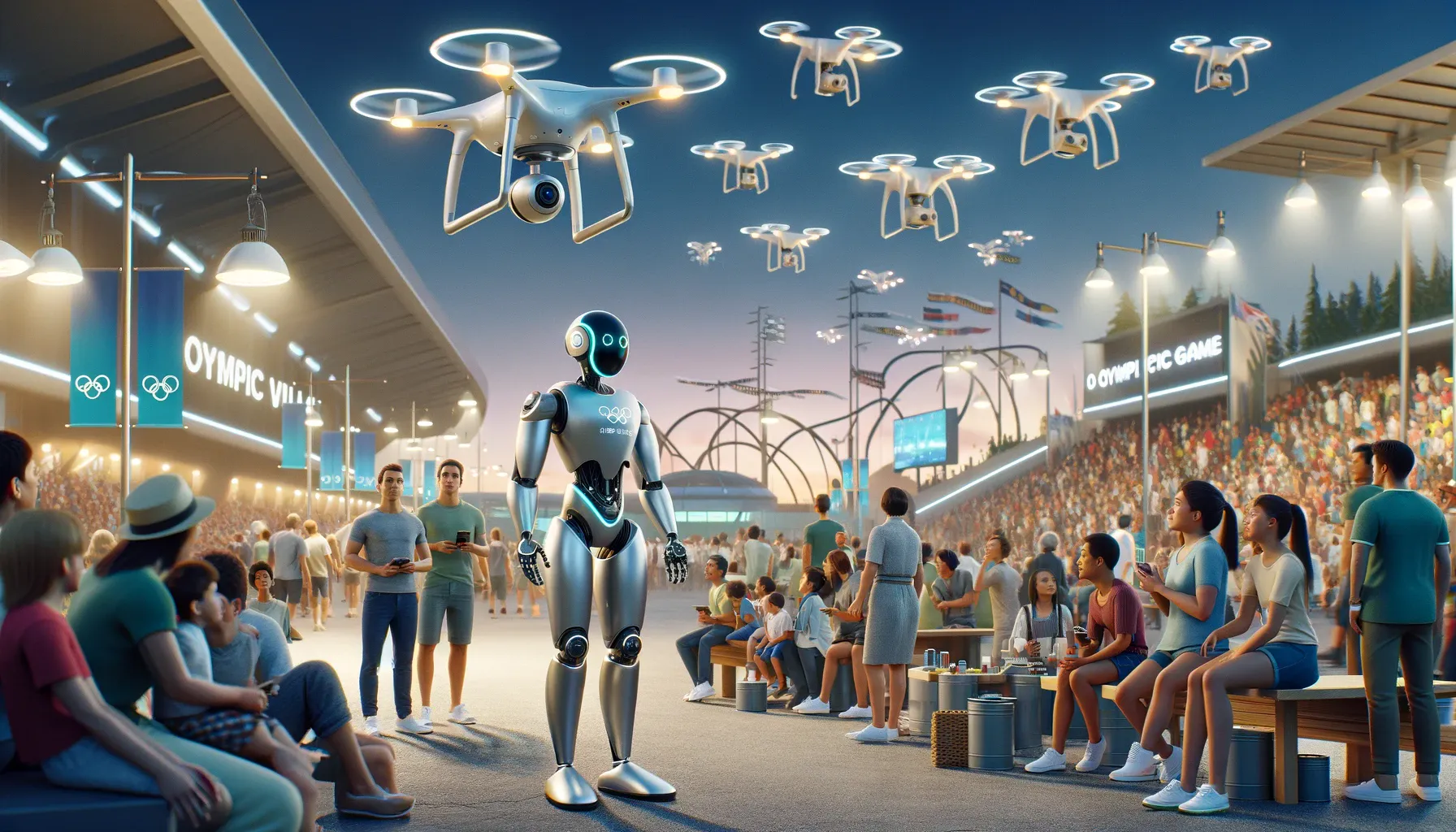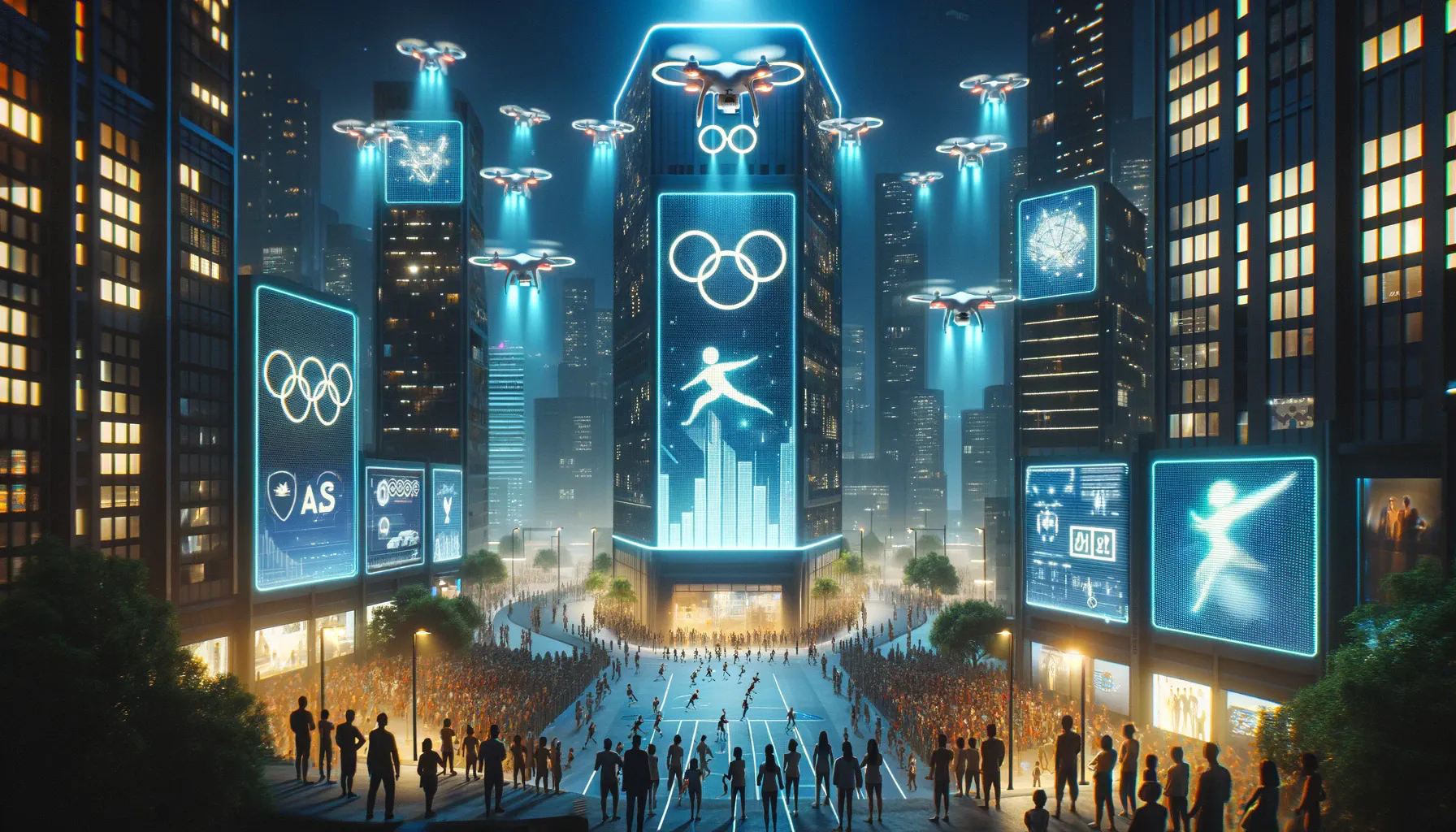Table of Contents
The Olympics, one of the most celebrated sporting events in the world, bring together athletes, spectators, and nations in a grand display of unity and competition. However, organizing and securing such a massive event presents unique challenges. Over the years, technological advancements have played a crucial role in ensuring athletes, visitors, and infrastructure safety and security.
In recent times, artificial intelligence (AI) has emerged as a game-changer in Olympic security. This article explores how AI-powered policing and security tech advancements have transformed Olympic safety, with real-world illustrations showcasing their effectiveness.
The Significance of Security Tech Advancements in the Olympics
In recent years, the Olympics have grappled with escalating security concerns, including threats like terrorism, cyberattacks, and various criminal activities. To combat these growing challenges, there has been a significant shift towards adopting cutting-edge security technology.
This includes advanced surveillance systems equipped with facial recognition and AI-powered analytics, which can help identify potential threats and monitor crowds effectively. Drones and autonomous robots are also being employed for enhanced situational awareness and rapid response capabilities.
Additionally, cybersecurity measures have been strengthened to safeguard critical infrastructure from cyber threats, making the use of AI-driven threat detection systems essential in protecting sensitive data and networks. Overall, the integration of AI-powered policing and other security technologies is becoming paramount in ensuring the safety and security of Olympic events.

AI-Enhanced Threat Detection: Artificial intelligence has enabled the development of advanced algorithms capable of analyzing vast amounts of data in real-time. For instance, companies like Palantir Technologies have created AI-driven systems that can process and correlate information from various sources to identify potential threats more effectively.
Situational Awareness: AI-powered solutions are driving Security Tech Advancements by elevating situational awareness through the analysis of diverse data streams. Leading companies like Bosch Security Systems are pioneering AI-based video analytics for detecting suspicious behavior and objects, thus enhancing surveillance capabilities. These innovations integrate data from sources like CCTV cameras, social media feeds, and sensor networks, ultimately strengthening security measures and response effectiveness.
Incident Response: Security tech advancements, such as AI-driven incident management systems, have revolutionized security measures during large-scale events like the Olympics. These innovations enable real-time incident prioritization and efficient resource dispatch, ensuring a more proactive and effective response to potential threats. Companies like Hexagon AB have harnessed these advancements to enhance security significantly.
Cybersecurity: As cyber threats become more sophisticated, AI plays a pivotal role in defending against cyberattacks. Companies like Darktrace use machine learning to detect and respond to cyber threats in real-time, helping to safeguard critical infrastructure and sensitive data.
AI-Powered Surveillance and Threat Detection
Facial Recognition Technology
It has become a crucial component of AI-powered surveillance systems, revolutionizing security measures. One notable application of this technology was witnessed during the 2020 Tokyo Olympics, where the organizing committee adopted facial recognition to bolster access control and streamline security checks. This innovative approach reduced the potential risks associated with unauthorized entry.
Companies like NEC Corporation and Panasonic played pivotal roles in providing cutting-edge facial recognition solutions for the event. NEC’s NeoFace technology, for instance, helped ensure rapid and accurate identification of athletes, staff, and potential threats, contributing to the overall security and efficiency of the Olympics.
Behavioral Analysis
AI-driven security advancements have significantly improved behavioral analysis, enabling the detection of suspicious activities within crowds. During the 2018 PyeongChang Winter Olympics, AI algorithms monitored social media for threat-related keywords, allowing authorities to take preemptive action, and showcasing the power of AI-driven security solutions in enhancing security measures.
Predictive Policing and Crowd Management
Predictive Analytics: Security tech advancements, driven by AI-powered predictive analytics, are transforming the security landscape. Predictive analytics empowers authorities and organizations to proactively detect and mitigate threats by harnessing historical data and real-time information. Companies like Palantir Technologies assist in predicting security threats for government agencies and enterprises, while Darktrace employs AI for real-time cyber threat detection and response, bolstering overall security. Additionally, emerging technologies such as biometrics, blockchain, and quantum encryption are further enhancing security measures across various sectors.

Crowd Management: Security tech advancements, such as AI-driven crowd management systems by companies like IBM and Huawei, have significantly improved crowd management at events like the 2022 Beijing Winter Olympics. These systems utilize data from surveillance cameras and sensors to monitor crowd density, movement patterns, and congestion points, enhancing safety measures and enabling informed decision-making by event organizers.
Cybersecurity and Data Protection
Protecting Critical Infrastructure: The Olympics heavily rely on technology for crucial functions like ticketing, broadcasting, and transportation, making them susceptible to cyberattacks. Advanced AI-driven cybersecurity tools are crucial in countering these threats by continuously monitoring networks for anomalies and vulnerabilities. During the 2016 Rio Olympics, AI-based intrusion detection systems successfully thwarted cyberattacks, safeguarding critical infrastructure.
Notable companies like Darktrace and CrowdStrike provide AI-driven cybersecurity solutions. Darktrace’s “Enterprise Immune System” uses machine learning to detect network anomalies, while CrowdStrike’s “Falcon” platform employs AI for real-time threat identification and response. These security tech advancements enable proactive defense, swift threat detection, and mitigation, ensuring the security and smooth operation of major events like the Olympics in an era of escalating cyber threats.
Data Privacy and Compliance: AI plays a crucial role in ensuring data privacy and compliance with regulations like GDPR by anonymizing and securing personal data, reducing the risk of data breaches. During the 2020 Tokyo Olympics, privacy concerns arose due to the extensive use of health data. Companies like Google and Microsoft have developed AI-driven tools for data anonymization, ensuring individuals’ privacy while allowing for data analysis.
Furthermore, advancements in security technologies, such as blockchain and federated learning, have enhanced data protection by providing secure and decentralized methods for handling sensitive information, making AI an essential component in safeguarding data privacy in today’s digital landscape. These security tech advancements offer robust encryption and decentralized data management, reinforcing privacy and compliance efforts.

Case Studies: AI in Action
Tokyo 2020: Facial Recognition and COVID-19 Compliance: The Tokyo 2020 Olympics faced the dual challenge of ensuring security and addressing public health concerns. To tackle this, AI-powered facial recognition technology was employed not only for security but also for COVID-19 safety compliance.
Companies like NEC, a Japanese tech giant, provided advanced facial recognition systems for the event, helping identify mask non-compliance. Cutting-edge security technology, including drones and biometric access control, was deployed to enhance overall safety at the Olympics, showcasing AI’s versatility in addressing both security and public health needs on a large scale.
PyeongChang 2018: Social Media Monitoring: During the 2018 Winter Olympics in PyeongChang, South Korea, security tech advancements were employed to enhance safety measures.
These innovations included AI-driven social media monitoring, exemplified by companies like Dataminr, which used advanced algorithms for real-time analysis of social media to detect keywords related to violence or terrorism. This proactive approach helped security agencies address potential threats before they materialized.
Additionally, security tech advancements encompassed facial recognition systems, drone detection, and mitigation technology, along with improved cybersecurity measures to safeguard sensitive data and infrastructure from cyber threats. These integrated technologies collectively ensured the safety of athletes, spectators, and participants during the event.
Paris 2024 Olympics: The Paris 2024 Olympics are set to revolutionize security with the integration of cutting-edge Security Tech Advancements. Organizers are introducing autonomous security robots equipped with AI algorithms for decision-making, enabling them to detect and respond to suspicious activities effectively. These robots will patrol event venues and interact with spectators, providing information and assistance as needed.
Additionally, other Security Tech Advancements such as facial recognition systems, drone surveillance, and data analytics are expected to be incorporated. These technologies will work together to create a robust security infrastructure, ensuring the safety of athletes, spectators, and the overall success of the event. One notable company in this field is Knightscope, known for its AI-equipped autonomous security robots.
Ethical Considerations and Challenges
Privacy Concerns: Security tech advancements, such as facial recognition, predictive analytics, and smart surveillance systems, have proven highly effective in enhancing safety at major events like the Olympics. However, these innovations also raise significant privacy and civil liberties concerns. Striking a balance between public safety and individual rights remains a challenge for Olympic organizers and host cities.
The controversial company Clearview AI, known for its mass scraping of internet photos to build a facial recognition database, exemplifies the privacy and surveillance issues associated with these security tech advancements.

Bias in AI Algorithms: AI algorithms used in security systems can inadvertently exhibit biases, which can result in unfair profiling and discrimination. Ensuring the fairness and transparency of these systems is crucial to avoid unjust consequences.
Biases can emerge from biased training data or flawed algorithms, leading to discriminatory outcomes, particularly affecting marginalized groups. For illustration, facial recognition systems from companies like IBM, Amazon, and Microsoft have been criticized for exhibiting racial and gender biases, which can result in misidentification and potential harm.
To address this issue, security tech advancements, such as diverse and representative training datasets and refined algorithms, are being made to reduce biases and enhance fairness.
Additionally, researchers are developing methods for AI bias detection and mitigation, like adversarial debiasing techniques and fairness-aware algorithms. Ensuring that AI systems adhere to ethical principles and are regularly audited for fairness will be essential as security technologies continue to advance to prevent unfair profiling and discrimination.
Conclusion
The use of AI-powered policing and security tech advancements has transformed the landscape of Olympic safety. These technologies provide real-time solutions to emerging security challenges, ensuring the safety of athletes and spectators alike.
While they offer immense benefits, it’s crucial to address ethical and privacy concerns to maintain a fair and secure environment for all. As we look ahead to future Olympics, it’s clear that AI will continue to play a central role in safeguarding the spirit of the Games.